On a new track
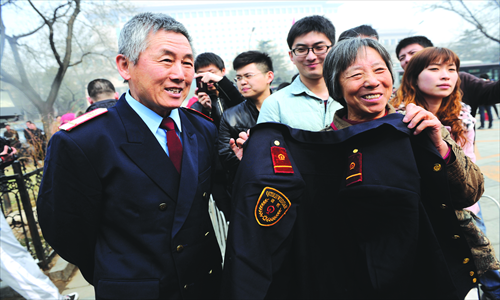
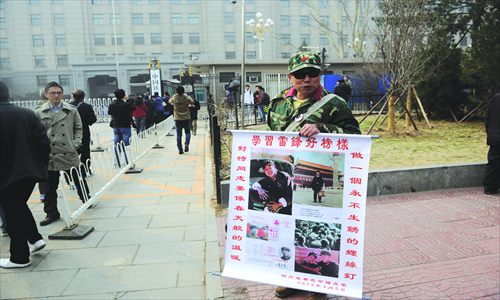
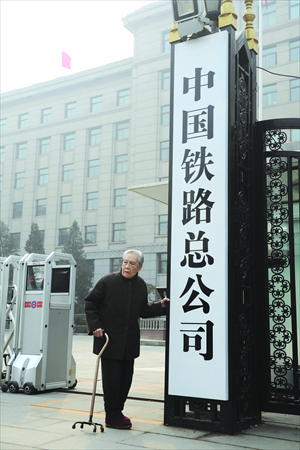
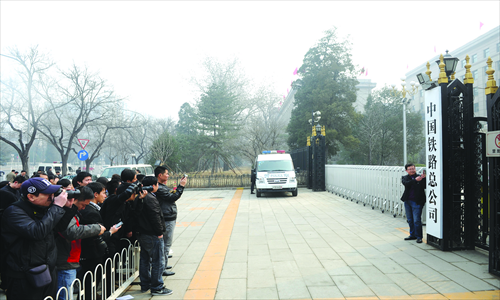
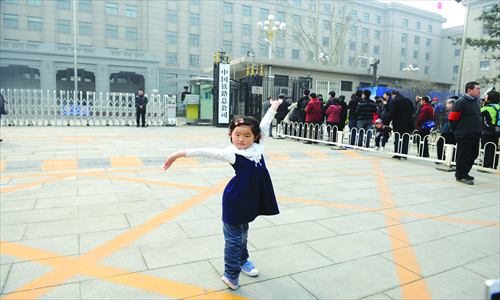
Most of the visitors who made a special trip on Sunday morning to the headquarters of the former Ministry of Railways (MOR) on Fuxing Lu in Haidian district were disappointed.
Some of them, including a 95-year-old retiree and a 4-year-old girl, traveled for more than one hour from Beijing suburbs such as Changping or Fengtai districts to pose for photos with the white sign bearing the ministry's name in black Chinese characters.
But they instead found the old one had already been replaced by a completely new one, bearing the name of China Railway Corporation.
The change in signage came one day earlier than the announced March 18 official end to the MOR. On March 10, China announced its plan to split the scandal and debt ridden MOR into two arms: the Ministry of Transportation will take over the railways' administrative functions and the new, private company China Railway Corporation will handle the commercial operations.
The visitors' hopes to capture keepsake photos on the last day of the MOR thus perished. Nevertheless, they queued and smiled while posing beside the new sign.
"I'm greatly satisfied as long as my photo is being taken here," said the retired 95-year-old, Su Guiyun, who was then hastily and reluctantly pushed away in a wheelchair by her son.
"There is a sense of loss among those who have dedicated almost all their working lives to the country's railways. It is like your home is gone all of a sudden," Yang Lirong, a retired railroad employee. Many of his colleagues became emotional and shed tears while visiting the headquarters over the last week. Yang, 65, who worked for more than 40 years with the railways in Sichuan Province and now lives with his daughter in Changping, did not get emotional, but he did feel a bit sorrowful while he learned the ministry was to be abolished forever.
Besides attracting streams of visitors wanting to snap photos, the new plan has also aroused a public debate over the future of the new operation.
The MOR, nicknamed the "independent kingdom" for having over 2 million staff and its own police and justice system, has been drawing public criticism for years. Among the issues plaguing the 1949-established ministry were the 2011 fatal crash in Wenzhou, Zhejiang Province, and the corruption which brought down its former boss, Liu Zhijun, also in 2011.
"The railway ministry should have been transformed into a corporation a long time ago. Only in that way can the railway system improve its transportation capacity, efficiency and service," said Zeng Hong, 37, who works on electric power supervision in a state-owned company in southern Beijing's Fengtai district. Zeng traveled for more than an hour on Sunday to the headquarters with his wife and teenage son.
The problem with the current railway system, Zeng said, is that it's still under the monopolized management of the planned economy, and it does not make adjustments according to the actual demands of passengers.
"In off-peak season, the ministry should have less trains, but for peak seasons such as the Spring Festival, it should increase its transportation capacity. Once it is transformed into a company and needs to make money from its own operations, it then might be able to make smarter adjustments," said Zeng, a frequent railway traveler.
However, the hasty breakup of the old ministry and formation of the new company has many confused. One police officer with MOR who requested anonymity doesn't know how his job will change. All he knows is he's still going to the same office in the same uniform, MOR badge intact.